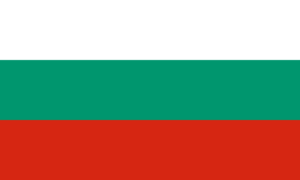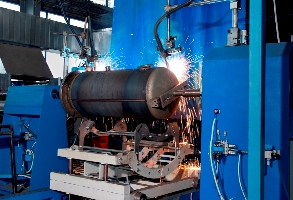Bulgaria: Great Demand for Solar Thermal Credit Funds
February 21, 2012
On the state level, Bulgaria is lagging behind in making use of the funds provided by the EU. Only Romania ranks worse in the comparison of EU member states. But how are things going for the Bulgarian population – do they fare better than their authorities in utilising the available EU funds to improve energy efficiency in their homes? Solarthermalworld.org spoke with Bulgarian bankers about their experience when it comes to supporting Bulgarian home owners with loans and grants for energy-efficient measures. The scheme supporting solar thermal systems in residential buildings is the Bulgarian Residential Energy Efficiency Credit Line (REECL) (see table below). Small-size commercial projects are financed by the Bulgarian Energy Efficiency and Renewable Energy Credit Line (BEERECL).
The financial situation of both programmes does look promising. From its beginning in 2004 until the preliminary end in 2011, BEERECL has enjoyed EUR 155 million in funds, of which EUR 110 million were paid out to local banks by the European Bank for Reconstruction and Development (EBRD). These bank-financed projects were able to eliminate over 653,000 tonnes of CO2 emissions per year. BEERECL has even been extended last year to run until 2013. The first phase of the residential programme REECL lasted from October 2005 to July 2009. In this period, EBRD contributed EUR 64 million of the EUR 90 million available for the programme. On 14 September, the second phase of REECL was officially launched in Sofia and will run until June 2014.
“Since energy prices in Bulgaria and elsewhere will continue to grow, we believe that many Bulgarian households will start to show interest in eco-friendly improvements to their homes and insulate walls, switch to biomass boilers or install solar thermal heating,” Aleksandar Hadzhiivanov explains. Hadzhiivanov is Principal Manager of the “Energy Efficiency and Climate Change Team” at the European Bank for Reconstruction and Development (EBRD), the institution responsible for distributing the EU funds through the local banks. “So, we extended REECL for three more years and have provided loans which amount to EUR 40 million. Another EUR 14.6 million have been made available to residents by the Kozloduy International Decommissioning Support Fund (KIDSF) in form of incentive grants,” Hadzhiivanov says, adding: “Some 20,000 households in Bulgaria will make energy-efficiency improvements over the next three years.” He estimates that in 2012, sub-loans will have increased to between 7,000 and 9,000.
“Since 2006, the grants have financed over 1,300 solar water heater installations with a total value of more than EUR 2 million,” Nadia Borissova, Communications Officer at the REECL Project Office in Sofia, says. Borissova and her colleagues promote the REECL programme and support the participating banks ProCredit Bank Bulgaria und Raiffeisenbank Bulgaria. “Residents receive a loan-related grant once the relevant energy-efficiency measure has been implemented successfully. The grant amount depends on the complexity of the project, varying between 20% of the loan value for renovating a single apartment and 35% for a retrofit project initiated by an entire group of home owners,” says Borissova.
Whereas ProCredit Bank Bulgaria was not available for comment, the PR Manager at Raiffeisenbank Bulgaria, Bojidar Gyurov, says that his bank has teamed up with EBRD since 2006 whenever REECL funds are allocated to finance energy-efficiency investments by home owners or related associations. “An incentive grant is only paid if a project is in compliance with REECL conditions,” Gyurov explains. The maximum grant for a single solar thermal installation is EUR 1,000 – large renovations can amount to as much as EUR 9,000. “Besides the joint programme run together with EBRD, we are promoting energy-efficient behaviour among our customers by having set up a specialised website at http://www.ecocredit.bg and running various campaigns deeply dedicated to the issue,” Gyurov adds.
Hadzhiivanov regards both EBRD energy-efficiency schemes, BEERECL and REECL, as “financing mechanisms that provide great flexibility and economics. They are able to deliver energy-efficiency improvements in a legal and institutional environment as complex as the Bulgarian economy”. Because of good experiences with those schemes in countries such as Bulgaria and Romania, EBRD is planning to replicate the model in other countries throughout the region, “in which legal and economic barriers prevent other financing mechanisms from being used in the residential sector”. This year, EBRD aims to strengthen its support for renewable energies and energy efficiency across South-East Europe by launching four Sustainable Energy Efficiency Financing Facilities.
More information:
http://www.reecl.org/indexen.php
http://beerecl.com/cms/?q=en
| Country / region | Bulgaria |
| Name of programme | Bulgarian Energy Efficiency and Renewable Energy Credit Line |
| Type of incentive | Combination of grants and loans |
| Eligible technologies | Technologies for the enhancement of industrial energy efficiency and small renewable energy projects, amongst others solar thermal systems |
| Applicable sectors | Commercial sector |
| Amount
|
Loans up to EUR 2.5 million for energy efficiency or renewable energy projects, Incentives can be 15 % for EE projects and up to 20 % for renewable energy projects. |
| Maximum incentive
|
There is a limit on the amount of the loan principal, on which the grant can be received. This limit differs among the participating banks as follows:
Bulgarian Post Bank: EUR 750,000 The cash incentive grants for solar thermal are limited to EUR 15,000 to 400,000 -depending on size of the loan |
| Terms of loan
|
Different conditions at the various participating banks.
Payback time: 3.5 to 10 years For further information contact the bank in question. |
| Requirements for system | n/a |
| Requirements for installation | an approved expert monitor the first 72 hours after start of operation. |
| Finance provider
|
Applications for BEREECL grants and loans can be made at any branch of the following participating banks:
|
| Total funds
|
The total funds include energy efficent measures and different renewable technologies. |
| Funding source
|
|
| Effective date | April 2004 |
| Expiration date | Closed on 28th February 2014 |
| Statistical information | Solar thermal projects funded until October 2008: 2 |
| Website | http://www.beerecl.com |
| Last review of this tabloid | November 2011 |
| Contact | DAI Europe & EnCon Services Project Team 135 Georgi S. Rakovski Str., entr. 2, fl. 5 1000 Sofia Dr. Ilya Iliev Phone: +359/298 800 52 E-Mail: iilev@enconservices.com |


